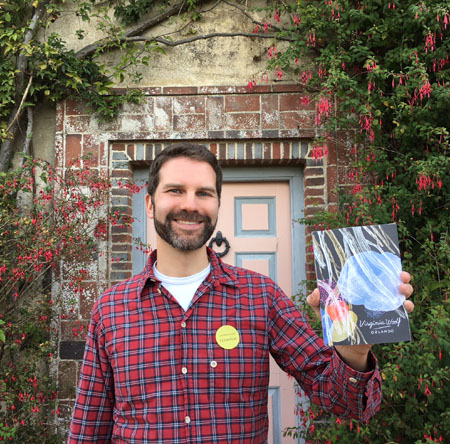It feels negligent that I've never made a dedicated post about my favourite novel of all time on this blog. However, I recently reread it in its entirety with my online book group so it feels like the right moment to write about it. “The Waves” has been a companion of mine for over twenty years which I return to frequently in order to reread a section or listen to on audio book while walking or riding a bus through London. It's the perfect novel to occasionally revisit since it follows the trajectory of six main characters' lives. As I grow older I relate differently to their perspectives and Virginia Woolf's profound musings. When I first happened upon this book I found it challenging to get into. The poetic nature of the prose initially makes the characters' different voices sound the same and there's little evident plot. But I was entranced by the style of Woolf's tale and I've grown to appreciate what she's really saying through this artfully crafted book.
As the story revolves between the six characters' perspectives the narrative claims they are speaking, but this isn't dialogue or even necessarily what these individuals are thinking. They could be called soliloquies but I think of their passages more as subconscious speech describing how their experience of the world is filtered through their different points of view. Each section leaps forward in time following these characters from youth till old age and every part begins with a description of the sun moving across the sky over a day. As the light changes so does the appearance and seeming solidity of the world it illuminates. The style of this story reflects how we are unified by common life cycles, but our individual personalities differently colour our experience of it. There are plot developments to do with relationships, professional achievements, death and suicide. But the overarching meaning of “The Waves” is more about the tension between our inner life and the outward experience of it. Also, it highlights our various connections and disconnections with each other.
This is why I think this is a novel which can be endlessly revisited because my perspective on the characters and story has drastically changed as I've continued to age and experience more. Sometimes I'll feel more of an affinity with some figures more than others or the characters reflections at a certain point in my life will resonate more or less strongly. Woolf's prose are also packed with so much symbolism and can be interpreted many different ways. Certain lines still perplex me, but I enjoy trying to decipher their possible meaning. Sometimes I'll read a passage in this book and the profundity of it will hit me with such power that I laugh out loud or start crying. “The Waves” continues to impact me, teach me and give me joy making it an invaluable touchstone.









